My mum’s death taught me that there’s no right or wrong way to grieve a loved one
Ms Tan Fang Xian's mother died in December 2023. Now, the 31-year-old is still coming to grips with the emotional wounds left behind by her mum's 14-month battle with cancer.
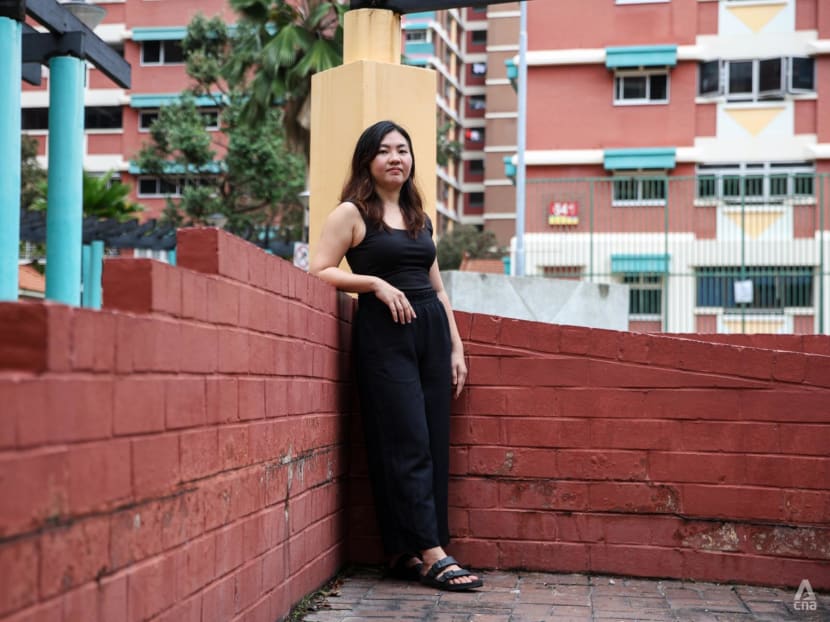
Ms Tan Fang Xian (pictured) remembered her mother used to pack lunches for her school-going children and got them their favourite food when she returned home from work. (Photo: CNA/Nuria Ling)

This audio is generated by an AI tool.
My mother was the strongest person I’ve ever known.
Coming to Singapore from Malaysia in her youth to make a living in the early 1980s, my mother soon got married and settled down here. She worked many jobs over the years. She toiled in fast-food restaurants, got trained as a massage specialist and, for most of my childhood, owned and ran her own massage business.
She worked hard no matter what she did, and she did it all with incredible grace.
There was never a complaint from her, just unconditional love that showed up in her everyday actions: Packing us lunches for school, getting us our favourite food when she returned home from a hard day.
She made sacrifices each day without expecting recognition or reward. She showed me and my brother that strength isn’t always loud – it’s in the silent, everyday decisions and actions that built and shaped our family.
I was 29 when she died.
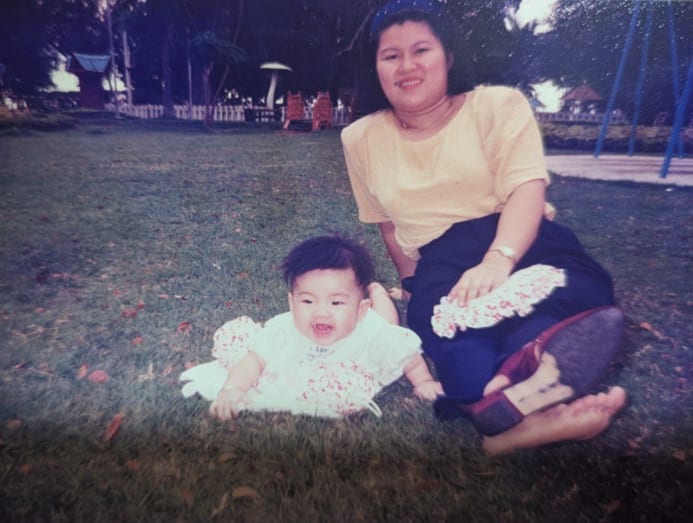
A SERIES OF PAINFUL EVENTS
The period leading up to my mother’s death was a slow unravelling of pain, beginning with a stroke that left her half-paralysed.
One night in September 2022, she suddenly found herself unable to move half her body. We immediately called the ambulance and she was hospitalised, diagnosed with ischemic stroke that same night.
I felt shaken to my core. The strongest person I’d ever known was suddenly so fragile and vulnerable.
She spent five months in hospital due to unstable conditions such as fluctuating blood pressure, blurred vision and so on.
Shortly after the stroke, she also suffered from left shoulder dislocation, a common complication after stroke due to her partial paralysis. This hindered the recovery of her upper body functions and she needed assistance for daily living activities.
After three months of physiotherapy and occupational therapy, my mother regained some physical movements in her feet and was able to take a few steps with the help of a quadstick.
In mid-2023, just when we thought she was on the road to recovery, the dire prognosis of cancer struck us and we felt utterly helpless.
Over another three months, we had medical appointments with various departments. Skin biopsies, imaging tests, colonoscopies, endoscopies, PET scans, CT scans – all necessary tests for the doctors to get the information they needed.
However, just because they were needed didn’t make them any less stressful or draining.
By the time we received treatment advice, my mother was overcome by frustration and anger. She was in denial and it was a struggle for us to persuade her to go through the recommended treatment plan: Surgery first to remove the cancer tumour on the skin surface, followed by chemotherapy and radiation therapy.
After that first surgery to remove the tumour, it took a whole month for her skin to heal.
Too soon after that, my mother died. It was December 2023, just 14 short months after her stroke.
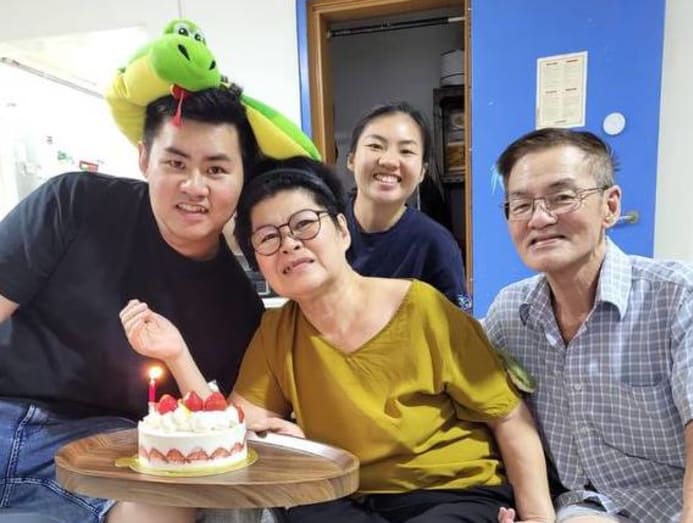
A HARD LOSS
My mother’s death shattered everything I thought I knew.
The reality of mortality hits hard when it’s the person closest to you who is taken away.
Suddenly, death was not a concept anymore. It was a present reality, one that weighed on my chest with a heavy permanence I hadn’t anticipated.
As a young adult, I had only just started to find my own way in the world, to build my own life. But now, the fragility of life itself felt surreal – even unreal.
I found myself replaying the last year of my mother’s life in my head, over and over.
In hindsight, the emotional struggles of my mother’s rapid debilitation were way harder than the physical struggles.
It was not just her body that was failing, but the person within. Cancer is difficult enough to deal with on its own; doing so in the midst of a stroke recovery is simply unimaginable.
Towards the end, my independent mother became so angry – at the disease, at the universe for being unfair and at caregivers for not being able to make things better.
There were times I couldn’t seem to find in her the strong, gracious woman I’d known all my life.
But she came back to us in moments of tenderness here and there.
Many times in the car, on the way back home from yet another exhausting visit to the hospital, my mother would crack jokes out of nowhere. “Do you know why penguins have white bellies? Their arms are too short to reach other parts of the body when they shower.”
These moments were rare and fleeting, but in them, I saw not just the tragedy of her illness, but also the beauty of how we fought it together as a family.
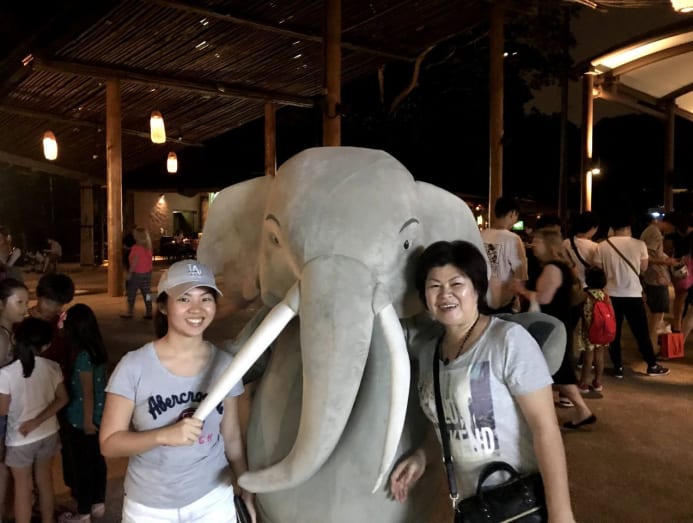
WORKING THROUGH GUILT AND GRIEF
A few months before my mum died, we learnt that the cancer had spread beyond hope of recovery. I could not look my mother in the face and truthfully tell her she would soon be well again.
This was undoubtedly the hardest part of this whole ordeal: The guilt.
I felt guilty for being busy and not being there as much as I wanted to be. I felt guilty for not knowing how to help her beyond visiting her at the hospital and taking her to the park so she could practise walking.
I felt guilty for not doing “enough”.
I spent hours looking for wheelchair-friendly activities we could do together, of which there were surprisingly plenty in Singapore. For instance, we took a memorable trip to Gardens by the Bay, spending time appreciating the plethora of flora and fauna there.
It did boost our moods and mental health at the time.
Soon after, though, my mother was just not in the mood to go outside anymore. She often did not feel well physically and preferred to rest.
All the same, I felt bad for not taking her out, for being unable to help.
I never spoke of it to my mother, though. I didn’t want to add to her burden.
It took me some time after she died to learn that, in such times, just being there was enough.
Speaking to professionals and reading up on guidance from experts showed me that there’s no “right” way to help, no “right” way to grieve.
All we can do is what we can do. It’s okay to feel everything and nothing all at once.
YOU NEVER REALLY LOSE THE ONES YOU LOVE
It wasn’t easy, but I knew I had to tend to my emotional wounds in order to heal.
I took a break from work to reset myself.
I turned to writing. My journal became a space where my emotions could run wild and I could process my thoughts without judgment. I started meditating regularly, which helped me calm and centre myself.
Losing my mother in such a drawn-out way also showed me that I’m capable of much more resilience and empathy than I thought. I’m now more patient, more understanding and more protective of my energies.
These days, I put much more consideration into the way I spend my time, the people I prioritise and the things I value. No one gets to stay in this world forever and that’s a lesson you cannot unlearn.
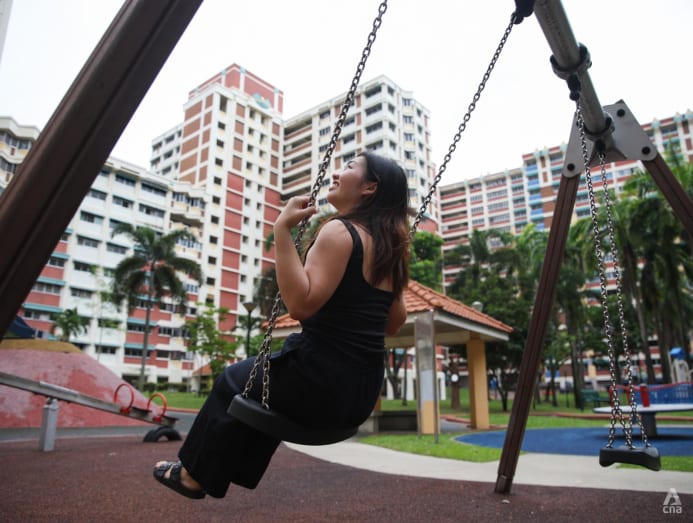
Nevertheless, the pain of losing a mother never goes away.
There are days when the grief hits me unexpectedly. Sometimes, I see other mothers and daughters together – laughing, arguing or just walking side by side or hand in hand – and the wound of loss aches all over again.
But what they say is true: You never really lose the people you love.
The love my mother and I had for each other lives on still. I feel it every day. Everywhere I go, I carry with me the joyful moments we shared, along with the sadness.
I carry my mother’s legacy – her struggles and her strength – and I want to honour that by living a life she would be proud of.
Grief and pain don’t erase good moments. Healing is not forgetting and moving on.
And life – in all its messy, complicated, unexpected ways – goes on.
Tan Fang Xian, 31, is a wife and yoga enthusiast.












